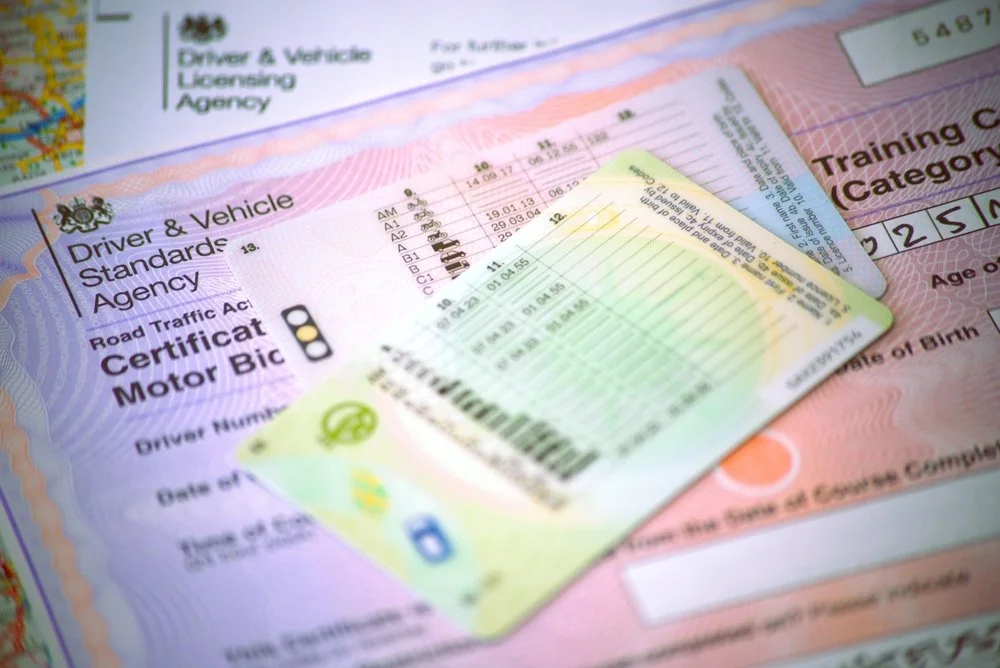Citroën e-C5 Aircross Becomes Second Car to Receive Full £3,750 Electric Car Grant
Source: Stellantis
Citroën Breaks Through with Full Grant Eligibility
The UK Government has confirmed that the Citroën e-C5 Aircross Long Range now qualifies for the full £3,750 Electric Car Grant under Band One classification. This makes the large family SUV only the second mainstream passenger car to achieve this distinction, following Ford's Puma Gen-E success in September 2025.
Transport Secretary Heidi Alexander welcomed the announcement: "We're delivering on our promise to make it easier and cheaper for families to go electric. This is about backing drivers, putting money back into people's pockets and creating the jobs and growth that will drive Britain forward."
The e-C5 Aircross joins the Ford Puma Gen-E and Ford E-Tourneo Courier as the only vehicles currently receiving the maximum government discount, highlighting the strict sustainability criteria required for Band One eligibility.
Why Only the Long Range Version Qualifies
Citroën's two-battery strategy has created an interesting dynamic. The manufacturer offers the e-C5 Aircross with both 73kWh (Comfort Range) and 97kWh (Long Range) battery options, but only the larger battery qualifies for the full £3,750 grant.
The 97kWh Long Range variant achieves Band One status due to its locally-produced battery manufactured in France, which scores higher on the Science-Based Targets necessary to receive the maximum grant. This demonstrates the government's commitment to rewarding genuinely sustainable manufacturing practices and shorter supply chains.
The smaller 73kWh Comfort Range battery receives only the £1,500 Band Two discount. However, this creates a compelling value proposition: the Comfort Range costs £36,750 (reducing to £35,250 after the £1,500 grant), whilst the Long Range costs approximately £39,000 before the grant. After applying the full £3,750 discount, the Long Range variant also costs around £35,250 – essentially the same final price whilst offering an additional 112 miles of range (422 miles total versus 310 miles).
For families considering the best electric family cars, this makes the Long Range variant exceptionally attractive, particularly when combined with salary sacrifice savings.
Understanding the Electric Car Grant Scheme
Launched on 16 July 2025, the UK's Electric Car Grant uses a two-tier structure based on environmental and sustainability criteria. Vehicles priced under £42,000 can qualify for either Band One (£3,750) or Band Two (£1,500) discounts.
Band One eligibility requires manufacturers to demonstrate exceptional environmental credentials including Science-Based Targets validation, commitment to 42% emissions reduction by 2030, renewable energy usage above 80%, and verified carbon-neutral manufacturing. Band Two requires manufacturers to show measurable progress toward these targets.
The grant is available to UK drivers through multiple routes including private purchases, personal leases, business leases, and crucially, salary sacrifice schemes like The Electric Car Scheme. The discount applies per vehicle, meaning drivers can benefit multiple times when purchasing different eligible vehicles.
The Salary Sacrifice Advantage in November 2025
November 2025 represents an optimal moment for adopting electric car salary sacrifice. The combination of factors creates unprecedented savings potential for UK employees.
Firstly, the Benefit-in-Kind rate for electric vehicles remains at just 3% for 2025/26, compared to up to 37% for high-emission petrol and diesel vehicles. This low rate enables substantial tax savings when leasing an EV through pre-tax salary deductions.
Secondly, salary sacrifice schemes typically deliver 20-50% savings compared to traditional personal leasing, as monthly payments are deducted before income tax and National Insurance contributions. For a 40% taxpayer, this creates significant financial advantages.
Thirdly, the £3,750 Electric Car Grant stacks with salary sacrifice savings. For the Citroën e-C5 Aircross Long Range, drivers benefit from both the government discount and the tax-efficient payment structure, potentially saving over £7,500 annually compared to traditional financing methods.
The mid-spec Plus trim is expected to cost just over £39,000. With the £3,750 grant applied, this reduces to approximately £35,250. Through The Electric Car Scheme's salary sacrifice scheme, monthly payments could be reduced by a further 20-50% depending on individual tax circumstances.
Why the e-C5 Aircross Appeals to Families
Beyond the financial incentives, the e-C5 Aircross Long Range offers practical benefits for families. The 422-mile range addresses range anxiety concerns, making it suitable for longer journeys without frequent charging stops. The spacious SUV body style provides ample room for car seats, luggage, and family equipment.
The vehicle's charging capabilities support both rapid public charging for longer trips and convenient overnight home charging using a 7kW home charger. For families considering the switch to electric, the e-C5 Aircross represents a practical, affordable option when accessed through salary sacrifice.
Compared to petrol alternatives, the e-C5 Aircross delivers substantial running cost savings. Powering an electric motor costs between 3 and 5 times less per mile than petrol, potentially saving drivers between £1,000 and £1,500 annually for typical mileage.
Limited Band One Options Create Urgency
With only three vehicles currently qualifying for Band One status – the Citroën e-C5 Aircross Long Range, Ford Puma Gen-E, and Ford E-Tourneo Courier – families seeking maximum savings have limited choices. Whilst Band Two vehicles receive £1,500 discounts, the additional £2,250 available through Band One creates compelling value.
The government's £42,000 price cap ensures grant eligibility remains targeted at mainstream vehicles rather than premium models. This benefits middle-income families seeking practical, affordable electric vehicles through company electric car schemes.
For employers, offering salary sacrifice schemes with access to grant-eligible vehicles enhances their employee benefits packages whilst supporting corporate sustainability goals. The Electric Car Scheme provides Complete Employer Protection, eliminating financial risks if employees leave during the lease period.
Taking Action in November 2025
For employees whose employers offer The Electric Car Scheme, November 2025 presents an ideal opportunity to explore the Citroën e-C5 Aircross Long Range. The combination of the full £3,750 grant, 3% BiK rate, and salary sacrifice savings creates exceptional value for families requiring practical, long-range electric vehicles.
Those whose employers don't currently offer salary sacrifice can request implementation. With no cost to businesses and minimal administrative requirements, electric car salary sacrifice schemes represent attractive employee benefits that support recruitment, retention, and corporate sustainability objectives.
As the UK continues its transition toward the 2030 ban on new petrol and diesel vehicles, early adopters of electric vehicles through salary sacrifice position themselves to maximise savings whilst enjoying the latest sustainable technology.
Frequently Asked Questions
What is the UK Electric Car Grant?
The UK Electric Car Grant launched on 16 July 2025, offering up to £3,750 off qualifying electric vehicles priced under £42,000. The scheme uses two tiers: Band One vehicles receive £3,750, whilst Band Two vehicles receive £1,500. Eligibility depends on manufacturer sustainability credentials and Science-Based Targets validation. The grant applies to private purchases, personal leases, business leases, and salary sacrifice schemes.
Which cars qualify for the full £3,750 Electric Car Grant?
As of November 2025, only three vehicles qualify for the full £3,750 Band One grant: the Citroën e-C5 Aircross Long Range (97kWh battery), Ford Puma Gen-E, and Ford E-Tourneo Courier. All three must be priced under £42,000 and meet strict environmental criteria including locally-produced batteries and carbon-neutral manufacturing. Over 30 vehicles qualify for the £1,500 Band Two discount, including models from Volkswagen, Renault, Nissan, and Vauxhall.
Why does only the Citroën e-C5 Aircross Long Range qualify for Band One?
The 97kWh Long Range variant qualifies for Band One because its battery is manufactured locally in France, achieving higher sustainability scores under Science-Based Targets validation. The smaller 73kWh Comfort Range battery receives only £1,500 (Band Two) due to lower environmental scoring. The locally-produced battery demonstrates shorter supply chains and reduced transportation emissions, both critical factors in Band One eligibility. This creates unusual value: both variants cost approximately £35,250 after their respective grants, but the Long Range offers 112 additional miles of range (422 miles total versus 310 miles).
How much can I save with salary sacrifice on the e-C5 Aircross?
Combining the £3,750 Electric Car Grant with salary sacrifice creates savings exceeding £7,500 annually. Salary sacrifice typically delivers 20-50% savings compared to personal leasing, as payments are deducted before income tax and National Insurance. With the current 3% Benefit-in-Kind rate for electric vehicles in 2025/26, a 40% taxpayer leasing the e-C5 Aircross saves substantially on both tax and National Insurance contributions. The Electric Car Scheme provides detailed savings calculators to estimate individual savings based on salary and tax bracket.
Can I claim the Electric Car Grant through salary sacrifice?
Yes, the Electric Car Grant is fully compatible with salary sacrifice schemes. The £3,750 discount applies whether you purchase privately, take a personal lease, business lease, or use salary sacrifice through approved providers like The Electric Car Scheme. The grant is applied per vehicle, not per customer, meaning you can benefit from multiple grants over time. Combining salary sacrifice with the grant maximises savings, as you benefit from both the government discount and tax-efficient payments deducted before income tax and National Insurance.
What is the difference between Band One and Band Two grants?
Band One grants provide £3,750 and require manufacturers to demonstrate exceptional sustainability: Science-Based Targets validation, 42% emissions reduction by 2030, renewable energy usage above 80%, and verified carbon-neutral manufacturing. Band Two grants provide £1,500 and require manufacturers to show measurable progress toward these targets. Currently, only three vehicles achieve Band One status due to the stringent criteria. The £2,250 difference makes Band One vehicles particularly attractive when combined with electric car salary sacrifice, especially for families seeking long-range, practical electric vehicles under £42,000.
How do I claim the Electric Car Grant?
The grant is applied automatically at point of purchase or lease through participating dealers and approved salary sacrifice providers. You don't need to make a separate application. When ordering an eligible vehicle through The Electric Car Scheme, the £3,750 or £1,500 discount is already factored into your monthly salary sacrifice payment. For private purchases, dealers handling grant-eligible vehicles apply the discount during the transaction. The vehicle must be new, priced under £42,000, and manufactured by a company meeting Science-Based Targets criteria. Check the official government list for current eligible models.
Is November 2025 a good time to get an electric car through salary sacrifice?
November 2025 is optimal for electric car salary sacrifice adoption. The combination of the 3% Benefit-in-Kind rate (compared to up to 37% for petrol vehicles), availability of the £3,750 Electric Car Grant on select models, and 20-50% salary sacrifice savings creates unprecedented value. With only three Band One vehicles currently available, early adoption secures maximum savings before potential scheme changes. The Citroën e-C5 Aircross Long Range offers particular value for families, combining 422-mile range with practical SUV space and eligibility for both the full grant and salary sacrifice benefits through The Electric Car Scheme.
Does my employer need to offer The Electric Car Scheme?
Yes, to access salary sacrifice benefits, your employer must offer an approved scheme like The Electric Car Scheme. If your employer doesn't currently provide this benefit, you can request implementation. Electric car salary sacrifice schemes have no cost to businesses and minimal administrative requirements, making them attractive employee benefits that support recruitment and retention. The Electric Car Scheme provides Complete Employer Protection, eliminating financial risks if employees leave during the lease period. Employers can book a demo to explore implementation for their workforce.
What happens to the Electric Car Grant after 2025?
The UK Government has not announced an end date for the Electric Car Grant scheme launched in July 2025. However, government incentives typically evolve based on electric vehicle adoption rates and environmental targets. The current £42,000 price cap and two-tier structure ensure support remains targeted at mainstream vehicles. With the UK's 2030 ban on new petrol and diesel vehicles approaching, early adoption through salary sacrifice maximises current benefits including the 3% BiK rate and grant availability. We recommend acting now to secure the most favourable combination of incentives whilst Band One vehicles remain available.
Are you an employer?
BOOK A DEMOAre you an employee?
SEE AVAILABLE CARSYou might also like…
Last updated: 10/11/2025
Our pricing is based on data collected from The Electric Car Scheme quote tool. All final pricing is inclusive of VAT. All prices above are based on the following lease terms; 10,000 miles pa, 36 months, and are inclusive of Maintenance and Breakdown Cover. The Electric Car Scheme’s terms and conditions apply. All deals are subject to credit approval and availability. All deals are subject to excess mileage and damage charges. Prices are calculated based on the following tax saving assumptions; England & Wales, 40% tax rate. The above prices were calculated using a flat payment profile. The Electric Car Scheme Limited provides services for the administration of your salary sacrifice employee benefits. The Electric Car Scheme Holdings Limited is a member of the BVRLA (10608), is authorised and regulated by the FCA under FRN 968270, is an Appointed Representative of Marshall Management Services Ltd under FRN 667174, and is a credit broker and not a lender or insurance provider.
Copyright and Image Usage: All images used on this website are either licensed for commercial use or used with express permission from the copyright holders, in compliance with UK and EU copyright law. We are committed to respecting intellectual property rights and maintaining full compliance with applicable regulations. If you have any questions or concerns regarding image usage or copyright matters, please contact us at marketing@electriccarscheme.com and we will address them promptly.




